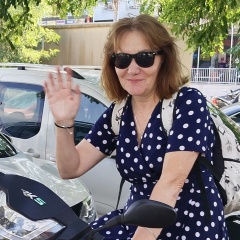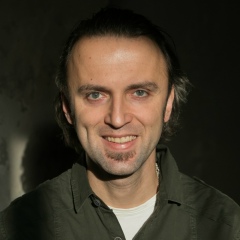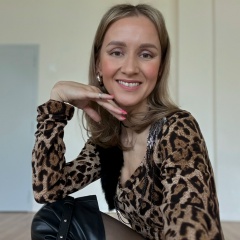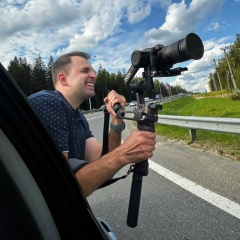Проблемы жителей Олимпа
Не так давно в «главном» театре Петербурга – БДТ – разгорелся конфликт вокруг будущего Андрея Могучего. Часть труппы выступала за смену худрука, часть за сохранение. В результате Могучий, вроде остается. Однако интересно присмотреться к конфликту повнимательнее, ибо он кажется абсолютно типичным и не только для театральной среды.
Какие, аргументы, в сущности, выдвигали стороны? Противники Могучего заявляли, что в театре умерло Чистое искусство, что работа там утратила высокий (если не весь) смысл. А главное, что те, кто приходит на спектакли это «нетовстоноговская публика». О чем говорили сторонники худрука и сам Могучий? «У театра есть удивительное свойство: в нём возникает пространство, которое объединяет зрителей разных поколений, отцов и детей, просвещенную публику и тех, кто по вечерам действительно смотрит дома «Камеди клаб» и «Дом-2».
То есть, если убрать всякие эвфемизмы и дипломатические обороты – спор шел о том, можно ли пускать стадо баранов в театр, или им там все же не место. То есть мнение о том, что зрители вообще не стадо и даже не бараны не выносилось на обсуждение. Даже несмотря на то, что массово они не блеют и жуют траву только в бургерах или салатах. Публика в глазах сторон по определению не равна Служителям муз. Спор только в том, можно ли ей на Избранных смотреть. Причем… судя по всему, представление об избранности не очень подкрепляется реальными делами. Не так-то много спектаклей БДТ (сделанных в рамках новой политики «заигрывания» со зрителями Дома-2 и «Камеди Клаба») с 2013 года стали Событиями в городе. Да в сущности не так много таковых было и за десять лет до этого…
И вот теперь о типичности. Когда смотришь на это все, вспоминаются споры журналистов – о «Ценностных СМИ» и «СМИ для современного человека». Это немного другая история, скажем так, двоюродный брат истории в БДТ, Но опять же – есть идея о ВЫСКОЙ журналистике, которая, нередко, выглядит довольно жалко. СМИ не для быдла. СМИ для думающих людей. Причем думающих как вы, поэтому доказывать, искать и вообще ничего не надо. «Современные же медиа», рассчитанны на всю ту же «аудиторию Камеди Клаб» эдакого придуманного монстра. Эти СМИ зачастую тоже выглядят довольно убого. Набор скандалов, сплетен и т.д. Стремление все превратить в один сплошной таблоид.
А разве не так же выглядит разделение в отечественной науке? Ученые, которые сидят в НИИ и бесконечно заявляют, что им ничего не надо, кроме ЧИСТОЙ науки (иногда даже собственно не нужно претворение их идей в жизнь). И эдакие «современные сайнс-менеджеры», которые заявляют, что наука вообще не нужна, нужны лишь конкретные решения для конкретных нефтегазовых проектов.
И, в сущности, на первый взгляд, все вышеописанное не кажется такой уж большой проблемой. БДТ давно не выглядит самым сильным театром города (как далеко не все НИИ выглядят храмами науки, да и количество вменяемых СМИ поубавилось). Для желающих авангарда есть Ленсовета, тем, кому нужны авторские постановки из разных стран могут пройти в Комиссаржевку, сторонникам более классического подхода дорога в МДТ и на Фонтанку. Такая же ситуация и в других областях. Но… есть очень большое но. В БДТ, как ни крути, сосредоточена элита (ненавижу это слово) петербургского театра (как во многих НИИ сидят ученые со всероссийским именем ну и дальше не буду продолжать список). Те самые люди, которые должны в силу морального авторитета противостоять, в том числе, и вмешательству властей в дела корпорации, и выступать нравственными и профессиональными ориентирами для коллег. А вот этого как раз и не получается. Олимп оторвался и от зрителей и от всего на свете и не может никому указать или помочь…
Не так давно в «главном» театре Петербурга – БДТ – разгорелся конфликт вокруг будущего Андрея Могучего. Часть труппы выступала за смену худрука, часть за сохранение. В результате Могучий, вроде остается. Однако интересно присмотреться к конфликту повнимательнее, ибо он кажется абсолютно типичным и не только для театральной среды.
Какие, аргументы, в сущности, выдвигали стороны? Противники Могучего заявляли, что в театре умерло Чистое искусство, что работа там утратила высокий (если не весь) смысл. А главное, что те, кто приходит на спектакли это «нетовстоноговская публика». О чем говорили сторонники худрука и сам Могучий? «У театра есть удивительное свойство: в нём возникает пространство, которое объединяет зрителей разных поколений, отцов и детей, просвещенную публику и тех, кто по вечерам действительно смотрит дома «Камеди клаб» и «Дом-2».
То есть, если убрать всякие эвфемизмы и дипломатические обороты – спор шел о том, можно ли пускать стадо баранов в театр, или им там все же не место. То есть мнение о том, что зрители вообще не стадо и даже не бараны не выносилось на обсуждение. Даже несмотря на то, что массово они не блеют и жуют траву только в бургерах или салатах. Публика в глазах сторон по определению не равна Служителям муз. Спор только в том, можно ли ей на Избранных смотреть. Причем… судя по всему, представление об избранности не очень подкрепляется реальными делами. Не так-то много спектаклей БДТ (сделанных в рамках новой политики «заигрывания» со зрителями Дома-2 и «Камеди Клаба») с 2013 года стали Событиями в городе. Да в сущности не так много таковых было и за десять лет до этого…
И вот теперь о типичности. Когда смотришь на это все, вспоминаются споры журналистов – о «Ценностных СМИ» и «СМИ для современного человека». Это немного другая история, скажем так, двоюродный брат истории в БДТ, Но опять же – есть идея о ВЫСКОЙ журналистике, которая, нередко, выглядит довольно жалко. СМИ не для быдла. СМИ для думающих людей. Причем думающих как вы, поэтому доказывать, искать и вообще ничего не надо. «Современные же медиа», рассчитанны на всю ту же «аудиторию Камеди Клаб» эдакого придуманного монстра. Эти СМИ зачастую тоже выглядят довольно убого. Набор скандалов, сплетен и т.д. Стремление все превратить в один сплошной таблоид.
А разве не так же выглядит разделение в отечественной науке? Ученые, которые сидят в НИИ и бесконечно заявляют, что им ничего не надо, кроме ЧИСТОЙ науки (иногда даже собственно не нужно претворение их идей в жизнь). И эдакие «современные сайнс-менеджеры», которые заявляют, что наука вообще не нужна, нужны лишь конкретные решения для конкретных нефтегазовых проектов.
И, в сущности, на первый взгляд, все вышеописанное не кажется такой уж большой проблемой. БДТ давно не выглядит самым сильным театром города (как далеко не все НИИ выглядят храмами науки, да и количество вменяемых СМИ поубавилось). Для желающих авангарда есть Ленсовета, тем, кому нужны авторские постановки из разных стран могут пройти в Комиссаржевку, сторонникам более классического подхода дорога в МДТ и на Фонтанку. Такая же ситуация и в других областях. Но… есть очень большое но. В БДТ, как ни крути, сосредоточена элита (ненавижу это слово) петербургского театра (как во многих НИИ сидят ученые со всероссийским именем ну и дальше не буду продолжать список). Те самые люди, которые должны в силу морального авторитета противостоять, в том числе, и вмешательству властей в дела корпорации, и выступать нравственными и профессиональными ориентирами для коллег. А вот этого как раз и не получается. Олимп оторвался и от зрителей и от всего на свете и не может никому указать или помочь…
Problems of the inhabitants of Olympus
Not so long ago, in the "main" theater of St. Petersburg - BDT - a conflict broke out around the future of Andrei Moguchy. Part of the troupe advocated a change of artistic director, part of the preservation. As a result, Mighty seems to remain. However, it is interesting to take a closer look at the conflict, for it seems absolutely typical and not only for the theater environment.
What, in fact, arguments were put forward by the parties? Opponents of the Mighty claimed that pure art had died in the theater, that work there lost its high (if not all) meaning. And most importantly, those who come to the performances are “non-Aston-Strog audience”. What did the supporters of the artistic director and the Mighty himself talk about? “The theater has an amazing property: it creates a space that brings together spectators of different generations, fathers and children, an enlightened audience and those who really watch Comedy Club and Dom-2 at home in the evenings.
That is, if you remove all sorts of euphemisms and diplomatic turns - the debate was about whether it is possible to let a herd of sheep into the theater, or if they still do not belong there. That is, the opinion that the audience is not a herd or even a sheep was not submitted for discussion. Even though they do not bleat en masse and chew grass only in burgers or salads. The public in the eyes of the parties, by definition, is not equal to the attendants of the muses. The only debate is whether she can look at the Chosen. Moreover ... apparently, the idea of being elected is not very supported by real deeds. Not so many BDT performances (made as part of the new policy of “flirting” with the audience of Dom-2 and “Comedy Club”) since 2013 have become Events in the city. Yes, in fact, not so many were even ten years before that ...
And now about typicality. When you look at it all, the disputes of journalists about the “Value Media” and “Media for the Modern Man” are recalled. This is a slightly different story, let's say, a cousin of history at the BDT, But then again, there is the idea of HIGH journalism, which often looks rather pathetic. The media is not for cattle. Media for thinking people. And they think like you, therefore, to prove, to search and generally do not need anything. "Modern media", designed for the same "comedy club audience" of a kind of invented monster. These media often also look pretty wretched. A set of scandals, gossip, etc. The desire to turn everything into one solid tabloid.
But doesn't division in domestic science look the same? Scientists who sit in the research institute and endlessly declare that they need nothing but PURE science (sometimes even actually they do not need to translate their ideas into reality). And a kind of "modern Sense managers" who say that science is not needed at all, only specific solutions for specific oil and gas projects are needed.
And, in essence, at first glance, all of the above does not seem to be such a big problem. For a long time, the Bolshoi Theater did not look like the most powerful theater in the city (how far not all research institutes look like temples of science, and the number of sane media has diminished). For those who want an avant-garde, there is the Leningrad City Council, those who need authorial productions from different countries can go to Komissarzhevka, and for those who prefer a more classical approach, the road to the MDT and to Fontanka. The same situation is in other areas. But ... there is a very big but. Whatever one may say, the BDT concentrates the elite (I hate this word) of the Petersburg theater (as scientists with an all-Russian name sit in many research institutes, I won’t continue the list). Those same people who, due to moral authority, must resist, including government interference in the affairs of the corporation, and act as moral and professional guidelines for colleagues. But this just does not work. Olympus broke away from the audience and from everything in the world and can not point anyone or help ...
Not so long ago, in the "main" theater of St. Petersburg - BDT - a conflict broke out around the future of Andrei Moguchy. Part of the troupe advocated a change of artistic director, part of the preservation. As a result, Mighty seems to remain. However, it is interesting to take a closer look at the conflict, for it seems absolutely typical and not only for the theater environment.
What, in fact, arguments were put forward by the parties? Opponents of the Mighty claimed that pure art had died in the theater, that work there lost its high (if not all) meaning. And most importantly, those who come to the performances are “non-Aston-Strog audience”. What did the supporters of the artistic director and the Mighty himself talk about? “The theater has an amazing property: it creates a space that brings together spectators of different generations, fathers and children, an enlightened audience and those who really watch Comedy Club and Dom-2 at home in the evenings.
That is, if you remove all sorts of euphemisms and diplomatic turns - the debate was about whether it is possible to let a herd of sheep into the theater, or if they still do not belong there. That is, the opinion that the audience is not a herd or even a sheep was not submitted for discussion. Even though they do not bleat en masse and chew grass only in burgers or salads. The public in the eyes of the parties, by definition, is not equal to the attendants of the muses. The only debate is whether she can look at the Chosen. Moreover ... apparently, the idea of being elected is not very supported by real deeds. Not so many BDT performances (made as part of the new policy of “flirting” with the audience of Dom-2 and “Comedy Club”) since 2013 have become Events in the city. Yes, in fact, not so many were even ten years before that ...
And now about typicality. When you look at it all, the disputes of journalists about the “Value Media” and “Media for the Modern Man” are recalled. This is a slightly different story, let's say, a cousin of history at the BDT, But then again, there is the idea of HIGH journalism, which often looks rather pathetic. The media is not for cattle. Media for thinking people. And they think like you, therefore, to prove, to search and generally do not need anything. "Modern media", designed for the same "comedy club audience" of a kind of invented monster. These media often also look pretty wretched. A set of scandals, gossip, etc. The desire to turn everything into one solid tabloid.
But doesn't division in domestic science look the same? Scientists who sit in the research institute and endlessly declare that they need nothing but PURE science (sometimes even actually they do not need to translate their ideas into reality). And a kind of "modern Sense managers" who say that science is not needed at all, only specific solutions for specific oil and gas projects are needed.
And, in essence, at first glance, all of the above does not seem to be such a big problem. For a long time, the Bolshoi Theater did not look like the most powerful theater in the city (how far not all research institutes look like temples of science, and the number of sane media has diminished). For those who want an avant-garde, there is the Leningrad City Council, those who need authorial productions from different countries can go to Komissarzhevka, and for those who prefer a more classical approach, the road to the MDT and to Fontanka. The same situation is in other areas. But ... there is a very big but. Whatever one may say, the BDT concentrates the elite (I hate this word) of the Petersburg theater (as scientists with an all-Russian name sit in many research institutes, I won’t continue the list). Those same people who, due to moral authority, must resist, including government interference in the affairs of the corporation, and act as moral and professional guidelines for colleagues. But this just does not work. Olympus broke away from the audience and from everything in the world and can not point anyone or help ...

У записи 4 лайков,
0 репостов.
0 репостов.
Эту запись оставил(а) на своей стене Константин Крылов
























